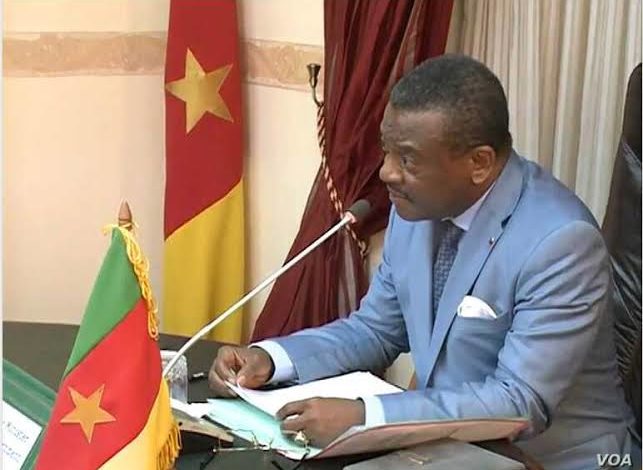Cameroon’s State Control Minister Opposes Audit Of COVID-19 Funds BY Supreme Court

The Minister Delegate at the Presidency in charge of State Control in Cameroon has opposed the assignment of the audit of the accounts of the Special COVID-19 Fund to the Audit Bench of the Supreme Court.
The decree to hand over the audit the Fund, which is supposed to have 180 billion FCFA (360 million dollars) to the Supreme Court was signed by Prime Minister Dion Ngute on Monday, July 27, 2020.
In a letter addressed to the Prime Minister, the Minister-designate, Mrs. Mbah Acha nee Fomundam Rose, Ngwasiri, said the decree constituted “a grave attack on the principles regulating the external control of public finances”.
“Visiting the textual dispositions in force, it is to be noted that the Ministry of State Control is the higher institution for the control of public finances and the state organ charged with the external audit within the highest level.
“The Audit Bench of the Supreme Court, on its part, ‘controls and examines the accounts or documents by taking into consideration the patent public finances.
“To this effect, it decides on the accounts that it is called upon to pass judgements establishing whether the accounts so examined are up to date in excess or debit”, the minister’s letter to the prime minister stated.
The minister warned about the risks of less than exhaustive conclusions after audit.
“In effect, in view of the increasing amounts put at work by the public authorities and the fact that government action in relation to the fight against the coronavirus was decided on the high instructions of the President of the Republic, His Excellency Paul Biya, himself, it seems imperative that he should be informed of the evaluation of the conformity and the performance in the utilisation of funds put in place in the fight against the pandemic.”
She expressed concern about the “exclusion of the competent executive authorities from the judicious exploitation of the conclusions that may eventually be arrived at.”
The minister stated that “the recommendations formulated after the audit could be useful in assisting the executive to identify risks and anomalies, fraud, wastage of resources and as such take corrective measures within the appropriate time, to the interest of our citizens.”
The prime ministerial decree instituting the audit to be carried out by the Audit Bench of the Supreme Court stipulates that the report of the audit has to be presented to the National Assembly.
The report has to be reviewed by the minister of Finance, after consolidation by the departments concerned with the management of COVID-19. The report on expenses related to the fight against the pandemic has to be published 30 days after the end of each semester.
Meanwhile, the public outcry continues concerning the non-availability of basic materials for the fight against coronavirus even in public health facilities and rural communities where they are most in demand.
“The 4,000 bags of rice donated by a local rice distribution enterprise and which were intended for distribution in rural communities hard hit by the COVID-19 pandemic seem to have ended in the offices and houses of regional governors and their surrogates.
Investigations by local media have not established a single village or community that confirmed it benefitted from the rice distribution, said an official of the Ministry of Health who elected for anonymity for fear of reprisals.
“Not a single village, I mean not one village has confirmed seeing even a single kilogramme of the said rice. Surely the rice has gone the way of the plastic buckets and the billions donated by the head of state and the money from the Special Fund for the fight against the coronavirus,” said a senior official in the Ministry of Territorial Administration which is supposed to supervise the distribution of COVID-19 materials.
The Minister of Public Health, Dr. Manaouda Malachie, to whom the 4,000 bags of rice and most of the money donated towards the coronavirus fight was handed, told the media last week that upon receipt of the the item, he shared and dispatched it immediately to the governors of the 10 regions of the country.
“Our duty was to dispatch the said rice to the various regions and that is what we did immediately on receipt of the 4,000 bags of rice,” the minister declared.
No regional governor has been willing to talk on the issue but what is certain is that the bags of rice have been found on sale in markets in Yaounde, Douala and some of the regional chief towns.
Support Our Journalism
There are millions of ordinary people affected by conflict in Africa whose stories are missing in the mainstream media. HumAngle is determined to tell those challenging and under-reported stories, hoping that the people impacted by these conflicts will find the safety and security they deserve.
To ensure that we continue to provide public service coverage, we have a small favour to ask you. We want you to be part of our journalistic endeavour by contributing a token to us.
Your donation will further promote a robust, free, and independent media.
Donate HereStay Closer To The Stories That Matter




